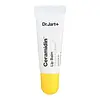What's inside
What's inside
 Key Ingredients
Key Ingredients

 Benefits
Benefits

 Concerns
Concerns

 Ingredients Side-by-side
Ingredients Side-by-side

Phytosteryl/Isostearyl/Cetyl/Stearyl/Behenyl Dimer Dilinoleate
Skin ConditioningHydrogenated Polyisobutene
EmollientBis-Diglyceryl Polyacyladipate-2
EmollientDiisostearyl Malate
EmollientDicaprylyl Carbonate
EmollientTribehenin
EmollientSynthetic Wax
AbrasiveCamellia Japonica Seed Oil
EmollientVp/Hexadecene Copolymer
Ethylene/Propylene/Styrene Copolymer
Candelilla Wax Esters
Parfum
MaskingDehydroacetic Acid
PreservativeCopernicia Cerifera Wax
Butylene/Ethylene/Styrene Copolymer
Tocopherol
AntioxidantPentaerythrityl Tetra-Di-T-Butyl Hydroxyhydrocinnamate
AntioxidantCeramide NP
Skin ConditioningWater
Skin Conditioning1,2-Hexanediol
Skin ConditioningLeontopodium Alpinum Callus Culture Extract
AntioxidantEthylhexylglycerin
Skin ConditioningSodium Hyaluronate
HumectantPhytosteryl/Isostearyl/Cetyl/Stearyl/Behenyl Dimer Dilinoleate, Hydrogenated Polyisobutene, Bis-Diglyceryl Polyacyladipate-2, Diisostearyl Malate, Dicaprylyl Carbonate, Tribehenin, Synthetic Wax, Camellia Japonica Seed Oil, Vp/Hexadecene Copolymer, Ethylene/Propylene/Styrene Copolymer, Candelilla Wax Esters, Parfum, Dehydroacetic Acid, Copernicia Cerifera Wax, Butylene/Ethylene/Styrene Copolymer, Tocopherol, Pentaerythrityl Tetra-Di-T-Butyl Hydroxyhydrocinnamate, Ceramide NP, Water, 1,2-Hexanediol, Leontopodium Alpinum Callus Culture Extract, Ethylhexylglycerin, Sodium Hyaluronate
Phytosteryl/Isostearyl/Cetyl/Stearyl/Behenyl Dimer Dilinoleate
Skin ConditioningDiisostearyl Malate
EmollientPentaerythrityl Tetraethylhexanoate
EmollientHydrogenated Polyisobutene
EmollientPolyglyceryl-2 Isostearate/Dimer Dilinoleate Copolymer
EmollientCeresin
Emulsion StabilisingEthylhexyl Stearate
EmollientTribehenin
EmollientCaprylic/Capric/Myristic/Stearic Triglyceride
EmollientSilica Dimethyl Silylate
EmollientEthylene/Propylene/Styrene Copolymer
Polymethylsilsesquioxane
Vp/Hexadecene Copolymer
Ceramide NP
Skin ConditioningButylene/Ethylene/Styrene Copolymer
Hippophae Rhamnoides Oil
EmollientPentaerythrityl Tetra-Di-T-Butyl Hydroxyhydrocinnamate
AntioxidantDehydroacetic Acid
PreservativePhytosteryl/Isostearyl/Cetyl/Stearyl/Behenyl Dimer Dilinoleate, Diisostearyl Malate, Pentaerythrityl Tetraethylhexanoate, Hydrogenated Polyisobutene, Polyglyceryl-2 Isostearate/Dimer Dilinoleate Copolymer, Ceresin, Ethylhexyl Stearate, Tribehenin, Caprylic/Capric/Myristic/Stearic Triglyceride, Silica Dimethyl Silylate, Ethylene/Propylene/Styrene Copolymer, Polymethylsilsesquioxane, Vp/Hexadecene Copolymer, Ceramide NP, Butylene/Ethylene/Styrene Copolymer, Hippophae Rhamnoides Oil, Pentaerythrityl Tetra-Di-T-Butyl Hydroxyhydrocinnamate, Dehydroacetic Acid
 Reviews
Reviews

Ingredients Explained
These ingredients are found in both products.
Ingredients higher up in an ingredient list are typically present in a larger amount.
We don't have a description for Butylene/Ethylene/Styrene Copolymer yet.
Ceramide NP is a type of ceramide and formally known as ceramide 3.
Ceramides are intercellular lipids naturally found in our skin that bonds dead skin cells together to create a barrier. They are known for their ability to hold water and thus are a great ingredient for dry skin.
Ceramides are an important building block for our skin barrier. A stronger barrier helps the skin look more firm and hydrated. By bolstering the skin ceramides act as a barrier against irritating ingredients. This can help with inflammation as well.
If you would like to eat ceramides, sweet potatoes contain a small amount.
Read more about other common types of ceramides here:
Ceramide AP
Ceramide EOP
Dehydroacetic Acid is fungicide and bactericide. It is used as a preservative in cosmetics. Preservatives help elongate the shelf life of a product.
Dehydroacetic Acid is not soluble in water.
Diisostearyl Malate is an emollient and most often used in lip products. It comes from isostearyl alcohol, a fatty acid, and malic acid, an AHA.
As an emollient, Diisostearyl Malate helps create a thin film on your skin to trap moisture in. This helps keep your skin soft and smooth.
We don't have a description for Ethylene/Propylene/Styrene Copolymer yet.
Hydrogenated Polyisobutene is a synthetic polymer. Polymers are compounds with high molecular weight. Hydrogenated Polyisobutene is an emollient and texture enhancer.
In one study, Hydrogenated Polyisobutene showed better skin hydration levels than Caprylic/Capric Triglyceride. As an emollient, it helps keep your skin soft and hydrated by trapping moisture in.
Hydrogenated Polyisobutene is often used as a mineral oil replacement.
Learn more about Hydrogenated PolyisobutenePentaerythrityl Tetra-Di-T-Butyl Hydroxyhydrocinnamate (long name, huh?) is a synthetic antioxidant.
It is used to help stabilize other antioxidants or prevent the color from changing in a product.
As an antioxidant, it helps fight free-radical molecules. Free-radical molecules are capable of damaging our cells and other genetic material. Thus, antioxidants may reduce the signs of aging.
This ingredient is oil-soluble.
Learn more about Pentaerythrityl Tetra-Di-T-Butyl HydroxyhydrocinnamateWe don't have a description for Phytosteryl/Isostearyl/Cetyl/Stearyl/Behenyl Dimer Dilinoleate yet.
Tribehenin comes from glycerin and behenic acid.
It is used as an emollient, or moisturizer. Emollients form a thin barrier on skin to prevent moisture from escaping.
This ingredient may not be Malassezia folliculitis, or fungal-acne safe.
Learn more about TribeheninVP/Hexadecene Copolymer is a synthetic film-forming agent. It has both water and oil loving properties, allowing it to create a flexible, even film on the skin.
This ingredient helps enhance texture, smoothness, and wear resistance in makeup products while reducing tackiness.